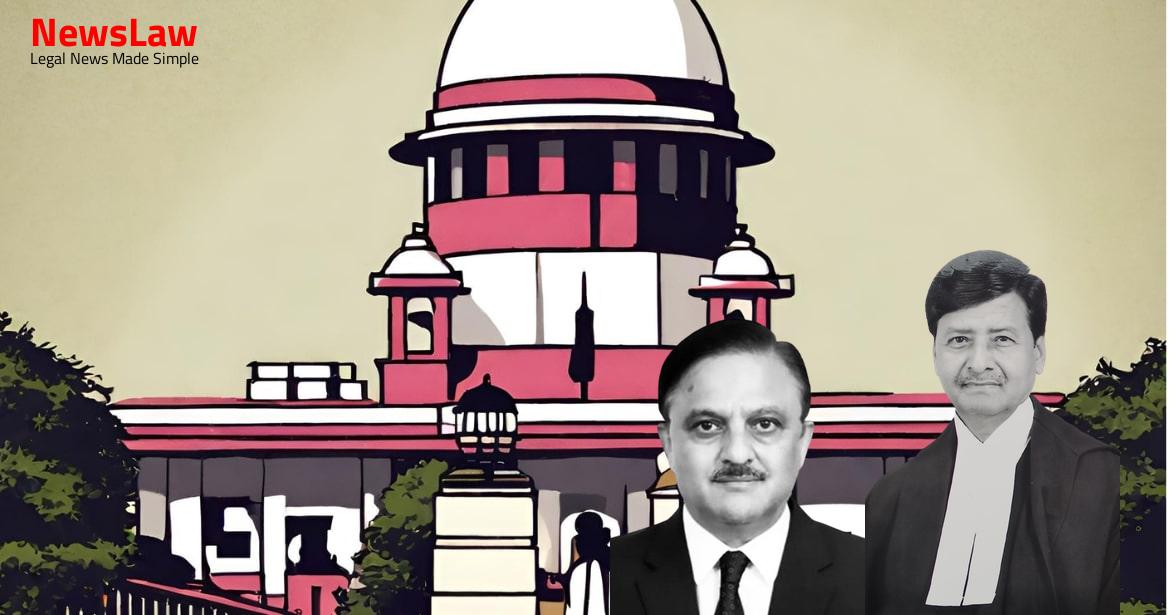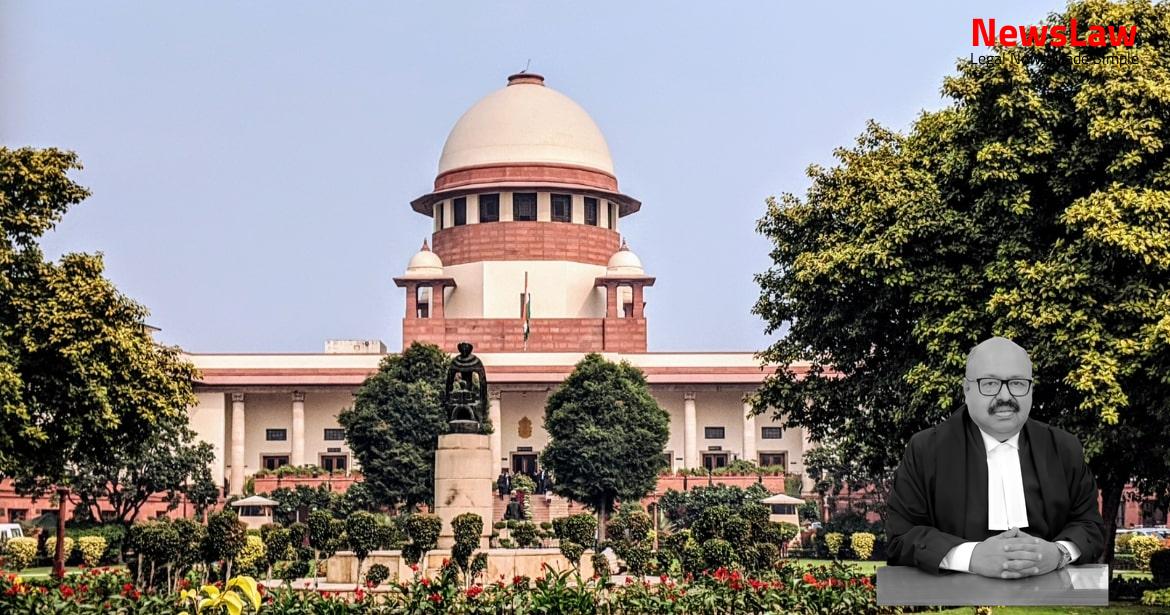In a recent legal case involving a fatal road accident, the court’s analysis of negligence played a crucial role in determining the compensation awarded to the victims’ families. The court carefully considered the evidence presented, witness testimonies, and existing legal precedents to establish liability in the accident. This case summary delves into the court’s rationale behind apportioning negligence, highlighting the significance of legal analysis in such matters.
Facts
- The accident involved the Maruti car driven by Mr. Subhash Babu, resulting in his death and injuries to his wife, minor son, and sister
- Mr. Subhash Babu was a 35-year-old HR manager driving on NH-47 when the accident occurred
- The Eicher van involved in the accident turned right without signaling, leading to the collision
- The respondents claimed compensation of Rs.3 crores citing negligence on the part of the Eicher van driver
- The appellants contested the claim before the Claims Tribunal
- The Claims Tribunal partially allowed the claim in M.C.O.P. No. 842 of 2014, awarding compensation of Rs. 10,40,500/-
- Contributory negligence was found on the part of both drivers, with a ratio of 75% on the deceased driver and 25% on the driver of the Eicher van.
- The High Court, on appeal, determined that the accident was solely due to the negligence of the Eicher van driver.
- The annual income of the deceased was Rs. 12,29,949/-.
- The High Court awarded a total compensation of Rs. 1,85,08,832/-, including conventional heads.
Also Read: Challenging Legal Analysis in 1989 Scheme Eligibility Case
Arguments
- The Tribunal correctly apportioned negligence to the deceased and the driver of the Eicher van, but this was overturned by the High Court against evidence on record.
- Counsel relied on judgments in Oriental Insurance Company Limited v. Premlata Shukla and Nishan Singh and Others v. Oriental Insurance Company Limited.
- The compensation awarded by the High Court is deemed exorbitant without sufficient evidence of the deceased’s income.
- The accident was attributed to the sheer negligence of the Eicher van driver by the respondent’s counsel.
- Respondent claimed the deceased was a Manager HR earning Rs. 1,33,070 per month, contradicting the High Court’s estimation of Rs. 12,29,949 annually for compensation.
- The First Information Report noted the accident resulted from the deceased’s negligence while driving a Maruti car behind the Eicher van.
- The High Court allegedly ignored crucial documentary evidence according to the appellant’s counsel.
- The evidence recorded before the Tribunal is given weightage over the contents of the First Information Report.
- Proof of rashness and negligence on the part of the driver is essential for maintaining an application under Section 166 of the Act.
- The factum of an accident can be proved from the First Information Report.
- In the case of Nishan Singh and Others v. Oriental Insurance Company Limited, it was held that the driver’s negligence led to a crash with a truck due to not maintaining sufficient distance as per Road Regulations under the Motor Vehicles Act, 1988.
- There is no fixed formula to determine negligence of the driver.
- The High Court awarded just compensation based on oral and documentary evidence, indicating no grounds for interference.
Also Read: Legal Analysis of Unilateral Cancellation of Registered Sale Deed
Analysis
- The High Court correctly considered the salary disclosed by the deceased for the Financial Year 2012-2013 for determining loss of dependency.
- Evidence from PW-1 and PW-3 established that the accident was caused by the negligence of the driver of the Eicher van.
- No rebuttal evidence was presented to contest the negligence of the Eicher van driver.
- Witnesses including PW-1 and PW-3 provided firsthand accounts of the incident.
- The First Information Report contents were not given weightage due to conflicting evidence presented.
- Judgments cited by the appellant’s counsel did not support the case based on the evidence in this specific case.
- The High Court assessed the deceased’s income at Rs.12,29,949 per annum despite the higher claim made by the respondents-claimants.
- Deceased was in permanent job at the time of accident
- High Court correctly applied future prospects and multiplier based on deceased’s age
- Conformity with judgments in Sarla Verma v. Delhi Transport Corporation and National Insurance Company v. Pranay Sethi
- High Court correctly awarded compensation on other conventional heads
Also Read: Legal Analysis on Special Procedures and Dismissal Orders in Police Force Case
Decision
- The Civil Appeal has been dismissed with no order as to costs.
- Stay of enforcement of the impugned judgment was granted subject to the condition of depositing a lumpsum compensation of Rs. 25 Lakhs before the Tribunal.
- The amount deposited should be placed in an interest earning Fixed Deposit in a Nationalised bank.
- The deposited amount, along with accrued interest, shall be paid to the respondents-claimants.
- The remaining amount to be paid by the appellant-Insurance Company within two months from the date of the judgment.
Case Title: NATIONAL INSURANCE COMPANY LTD. MANAGER Vs. CHAMUNDESWARI (2021 INSC 592)
Case Number: C.A. No.-006151-006151 / 2021



